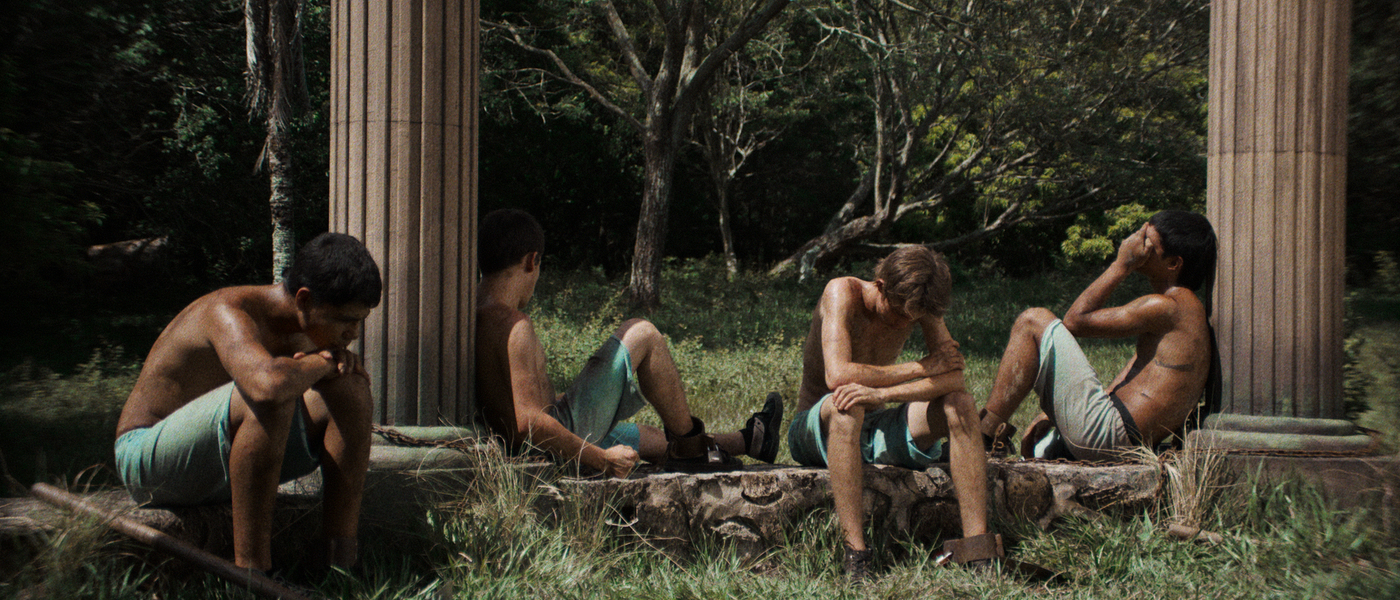About La Jauría
by Bruno Icher

by Bruno Icher
They’re kids, and they’re murderers. Teenagers, like thousands scattered throughout Colombia, cannon fodder for gangs and cartels, prison stock for the authorities who’ve been unable to keep up for ages. In the closed setting of a prison-like experiment, it is now time for the lost boys of a pack (Jauría) to choose. Redemption, and the possibility of a miserable life - without drugs, without violence but without hope. Or a return to chaos, to the heat of the streets and childish illusions to become a criminal mastermind over a kingdom and its intoxicating smell of blood and death.
Interview with Andrés Ramírez Pulido
“In keeping with my previous short films, El Eden (Berlin) and Damiana (Cannes), La Jauría also addresses the importance of the father figure, abandonment, violence and the indelible mark an absent father makes on a child. It’s the story of a teenager, Eliu - and that of a whole generation – whose relationship with his father, hatred and death delves him in a never-ending cycle of violence. The film raises the following question: How can a child break free from a background that is such an intricate part of his being?
So I came up with this prison, that place out of time, where teenagers can get therapy. Such a place doesn’t exist in Colombia, but meeting these young offenders, incarcerated for addiction or crime, provided me with the material for this piece of pure fiction that stands clear of any social naturalism, which abounds in Latin American cinema. I also wanted that film to show the stigma of a history plagued with violence, a paradise lost if you will, in which kids must live today.
Through the character of this guilt-ridden young man, I wanted the story to connect the audience to their own humanity. I wanted to walk Eliu through his journey towards the light and to connect him with something intangible, an encounter with the invisible, if you will. That’s what cinema is, a passage between the visible and invisible realm, between who we are and who we could become. A window to what doesn’t yet exist.”